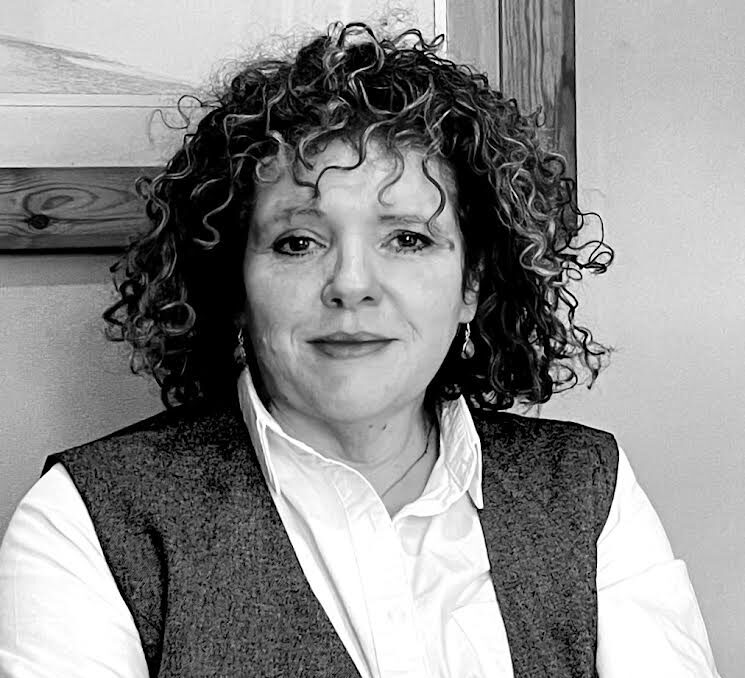Jackie Richards is the undertaker at Ellis Brothers in Rye. Her story is one of the many recorded for the HerStory of Rye project which has been collecting women’s working histories in the town through interviews and photographs.
Jackie started work for Ellis Brothers at the age of fourteen with her father who was the undertaker. Jackie’s mum was a midwife. As opposed to a funeral director, Jackie, as undertaker, takes responsibility for the deceased right from the moment a person dies (when their body is brought to Ellis Brothers) and is then prepared for “last offices” – made clean and tidy before it goes into a coffin.
She says her job is to help people. “This is someone’s mum, someone’s child, someone’s grandma. This is the last thing I am going to do for you. It’s a nice thing (preparing the body), not horrible at all.”
Today nurses are not trained to deal with the dead person (closing their eyes and mouth, cleaning the body) and as undertaker, Jackie is responsible for this job. Rye hospital has no mortuary and Ellis Brothers is therefore the main mortuary for Rye. Funerals often don’t take place for several weeks as families tend to be more scattered, and the body needs to be kept safe in the mortuary until the funeral takes place.
In her interview on HerStory you can hear Jackie’s compassionate descriptions of dealing with families going through bereavement. They show the degree of her deep understanding and sensitivity about difficult decisions families must make at this time. She explains that burial is expensive and there are few “natural” places for people to be buried in this area.
Cremation is a less expensive option, but it is environmentally sensitive. Anyone who lives in the parish of Rye, irrespective of their religion, can be buried in the churchyard. Others with links to the church may be buried there if the church permits it.
Occasionally there is no one in attendance at a funeral, except for the officials. Jackie says this is really heart-breaking to see. Some people wish to see their dead relative’s body in order to be certain the person has died, while others have no desire to see this. It is a very personal thing, Jackie says. She does feel, however, that we do not talk enough about death in our society. In Victorian times sex was taboo and death was spoken of a great deal but now it is the other way round.
She does not put make-up on the faces of the deceased, unless specifically asked to do so. Covid was a very difficult time for many people as attendance at funerals was so restricted. However, she did say that some of the onerous paperwork, which has increased over time, was streamlined.
You can listen in more detail to Jackie’s interview on the website.
The HerStory project, which is funded by the Heritage Lottery Fund, is ongoing and we are still welcoming volunteers to undertake interviews. If you are interested, please contact Ali Casey at ali.casey63@gmail.com for further information.
Image Credits: HerStory .




Just to clear up one misunderstanding in this article which I am sure is not Jackie’s misunderstanding. Rye churchyard has been closed for burials – even those of cremated remains- since 1854. The principle applies though to churchyards which are still open for burials.
My advice would be it’s never too early to have a chat with Jackie and it can be useful to get things clearly explained, to avoid doubt later on.
Jackie is, of course, empathetic and kind, with helpful suggestions.